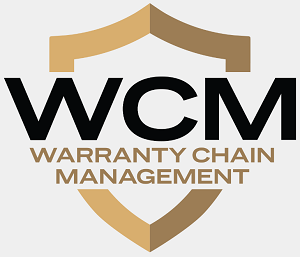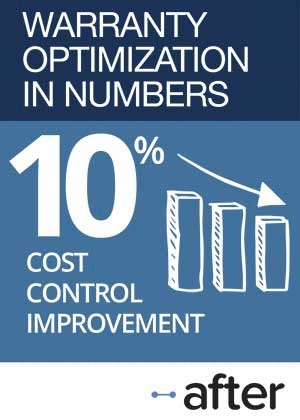February 27, 2014 |

|
ISSN 1550-9214 |
Service Contract Regulation Seminar:In addition to the customary annual update on service contract laws, regulatory actions and civil cases, attendees at the WCM Conference this year will get a detailed look at the CFPB and a snapshot of how service contract regulations work in Canada.
At this year's Warranty Chain Management Conference in San Diego, it will be possible for a service contract professional to gain a unique perspective on the latest changes in the rules and regulations governing the service contract industry in both the U.S. and Canada. Several speakers plan to talk specifically about the Consumer Financial Protection Bureau, which was created three years ago as a reaction to the perceived lack of consumer protection during the period leading up to the Great Recession. As its name suggests, the new bureau is supposed to regulate financial companies, but somehow its mission has grown to include, at least indirectly, some aspects of the service contract industry. Focus on the CFPBThe CFPB-related seminars begin on Wednesday, March 12, with a pair of presentations just before and just after lunch. Right after lunch at 1:30pm is when Steve Epperson, a dealer development specialist with Assurant Solutions, will deliver a presentation entitled, "CFPB and the Auto Industry: The Consumer Financial Protection Bureau's Potential Impact and What Dealers, Lenders & Third Parties Should Do To Prepare for It." 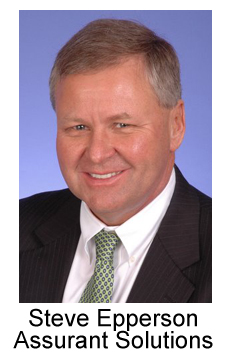
Epperson said he's not a lawyer and will definitely not be talking about how the CFPB does or does not have jurisdiction over service contracts. Instead, he said he will be looking at it from a car dealer's and vehicle service contract seller's point of view. "I have been an F&I trainer with Assurant for many years," he said, "and obviously part of our F&I class is compliance. And for some time, I've been tasked with following the latest happenings with the CFPB. And in fact, I wrote a blog on Extended View, our company website, where I have made a few postings about the CFPB." Epperson said he started out in the auto business right out of college in 1974. He worked for an auto dealer as both a new car salesman and an F&I person before he joined Assurant 12 years ago, where he became an F&I staff trainer. So he is going to focus on what he thinks dealers should do to prepare for, and hopefully avoid, the scrutiny of the CFPB. "The first thing I would recommend is to learn as much as I possibly could from any and all resources about the CFPB," Epperson said, "because the CFPB is still evolving. However, I do feel like it is a real hot button today, and they're being aggressive with their enforcement. So as a dealer, I'd just want to make sure I understand what the regulations are, what the requirements are, and how I'd remain in compliance." The next step would be to make sure all the salespeople also understand the regulations, and how to remain in compliance with them. Epperson said he would recommend continuous education, testing and follow-up to make sure the rules and regulations are being followed. And then he would make sure that each employee has stated, in writing, that they have been trained on this subject. "I think it's fair to say most all dealers will be affected," Epperson said. "I'd like to help them prepare, so they don't have any issues." Tenth Annual Legal UpdateJust before lunch on Wednesday from 10:45am to 12:30pm comes the "2013-2014 Extended Warranty National Regulatory Update and Case Law Review," presented by Stephen McDaniel, an attorney with Meenan P.A. and the assistant general counsel and assistant executive director of the Service Contract Industry Council; Brian Casey, an attorney and partner in the law firm of Locke Lord LLP and co-chair of its Transactions & Regulatory Insurance Group; and Christopher Karo, the associate division counsel with AIG Warranty. While Epperson said he plans to talk about the CFPB from a dealer's perspective and will avoid the legal questions, these are three attorneys with extensive oral and written opinions about the new bureau's place within the regulatory framework. All three attorneys have become experts on the regulations surrounding the service contract industry, and have returned to the WCM year after year to summarize the big changes. 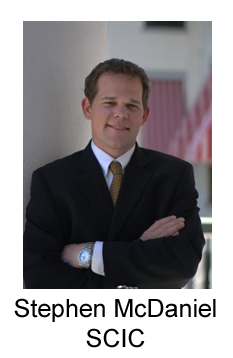
McDaniel said he's been to the last five WCM conferences, representing the SCIC as its assistant executive director. Tim Meenan, the SCIC's executive director, gave similar presentations at the first couple of WCM conferences, so this legislative and regulatory update has become something of an annual tradition at the show. McDaniel noted that SCIC members routinely get these sorts of regulatory updates much more frequently via internal emails and conference calls. Last week, for instance, SCIC members got no less than 15 email updates, he said, because of some news coming out of Indiana. But many of the manufacturers, consultants and tools providers that typically attend WCM shows are not SCIC members, so this track is an ideal opportunity for them to catch up on recent events. "It's really important for them to keep up on events," he said, "in order to stay abreast of what's happening in the states, which really affects these providers' programs -- the smallest change to a state law could change the terms and conditions of a service contract, or maybe the financial responsibility that the obligor has to have." Actually, during the SCIC's annual conference, a more thorough regulatory and legislative update usually takes up an entire day, he said. "And I think we may actually expand it to two days this coming October," McDaniel suggested. There's just so much going on in all the corners of the industry -- vehicle service contracts, mobile phone insurance, home warranties and extended service contracts on consumer electronics and appliances -- that the amount of ground to be covered no longer fits into a single day. So what McDaniel, Casey and Karo present in two hours at WCM will turn out to be a "speed metal" version of that annual update. McDaniel said he will do most of the regulatory update. Casey will summarize some of the case law. And Karo will take a look at some of the new legislation. But they'll also take a look at the new federal-level Consumer Financial Protection Bureau, which McDaniel said the SCIC has been following closely. Dealers' Financial Services OrderMcDaniel noted that the CFPB has already issued orders that have indirectly impacted GAP waivers and vehicle service contracts. For instance, one order released in June addressed how U.S. Bank and a company called Dealers' Financial Services LLC were allegedly marketing auto loans to military families that failed to disclose the monthly cost of the VSC and GAP waiver. He said the text of that order makes it clear that when the CFPB looks at auto loans, they're also looking at add-on products such as service contracts, which are frequently financed through those loans. However, he added that the SCIC does not believe that a service contract is a financial product or service in and of itself. But when it's part of a finance agreement, the CFPB will be looking at it. Also, the CFPB may eventually have something to say about the warranty extensions issued by the major credit card companies to their customers. Again, it's an indirect impact on warranties and service contracts, but credit cards and their benefits are definitely part of the CFPB's portfolio. "And then towards the end of the presentation, I like to give them a little snapshot of what we anticipate for the current year," he said. "We can give them a brief update on what's been going on across the country at the different state legislatures, and also with the state regulators, if there's a particular issue that has been pretty hot in a state at their Department of Insurance or another regulator." At the first WCM Conference nine years ago in San Francisco, Tim Meenan gave a concise update of where the 50 states stood in terms of service contract regulation, reducing a complex subject into three color-coded maps that described the different types of laws in force for VSCs, home warranties, and service contracts for consumer goods. If memory serves, it was one of several presentations that year for which there wasn't a spare seat in sight. Back then, the cutting edge of the industry was the addition of accidental damage protection to service contracts, which Meenan said was a very insurance-like enhancement. But in the years since, the SCIC and others have convinced most U.S. regulators, "one state at a time," as he suggested, to not treat accidental damage protection as insurance when it was offered as an incidental part of a service contract covering defects and deterioration. In the years since, the WCM Conference has featured numerous speakers from both the manufacturer's warranty and service contract sides of the business. They really do belong together. And as McDaniel pointed out, many manufacturers that offer product warranties either already sell or want to begin selling service contracts to both increase their service revenue and enhance their customer satisfaction levels. "A lot of the panels deal with the extended warranty industry as well as the experience when it comes to logistics and data mining," he said. "When you're looking at customer service, and how fast calls are responded to, and how quickly repairs are made, there's a crossover between warranty and extended warranty." Service Contract AttorneyBrian Casey, a partner in the law firm of Locke Lord LLP, said he also was at that very first WCM Conference on Fisherman's Wharf in San Francisco. He said that in a highly-fragmented industry, it's one of the few conferences of its kind. Simply put, there are very few lawyers deeply involved in the service contract industry, and very few places where they can meet manufacturers, retailers, administrators, and underwriters, to talk about issues of interest to their industry. 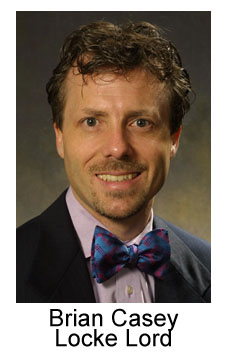
"There aren't too many forums, and there aren't too many lawyers in the country that have a regular practice in this area," he said. All five are probably going to be in San Diego for this year's WCM. Casey said he's been focused on the service contract corner of the insurance industry since at least the early 1990s, when the industry was much smaller and much less well-defined. Back then, regulators were beginning to pay more attention after a rash of poorly-financed service contract companies went under, leaving unhappy consumers in their wake. Even now, more than 20 years later, there's still lots to talk about. You have portable electronic device insurance, challenging the division between service contract and insurance, home warranties packaged as employee benefits and added into pay packages, and all these ancillary products sold alongside vehicle service contracts by new car dealers. "They keep trying to stretch the definition of a service contract," Casey said. And with items such as smartphones, it's created the expectation from consumers that if they buy a protection plan and then report their handset lost, stolen or broken, it's going to be replaced as soon as possible. It's no longer a question of getting it fixed if something goes wrong -- the traditional coverage provided by a warranty. So by pushing to expand the covered perils, the industry has also complicated the regulatory and legislative framework. Therefore, there's now even more to talk about. This year, Casey said he will first talk about some new tax-related case law that affects service contracts, and then he plans to take a deep dive on the subject of how the federal government is now making itself a force in service contract regulation through the new Consumer Financial Protection Bureau. Casey said he wrote an article back in July that asked the question, "Does CFPB Have Jurisdiction Over Service Contracts?" to which the answer is less that clear. On the one hand, the Dodd-Frank Wall Street Reform and Consumer Protection Act that created the CFPB prohibited the new bureau from regulating the insurance industry, a task which another law, the McCarran-Ferguson Act, assigns exclusively to the states. And service contracts are regulated in most states by their state insurance departments. However, in most states, service contracts are not considered to be insurance if they follow certain rules, which ironically are usually spelled out in a section of each state's insurance code. Is It or Isn't It Insurance?Therefore, Casey noted, service contracts are a bit of a paradox. To the states, they're not insurance, so their sellers and administrators shouldn't be regulated like insurance companies. But to the CFPB, they are insurance, or at least they're regulated by the state insurance commissioners, so the CFPB's additional oversight isn't needed. "Basically, I'm going to show how the CFPB is creeping into the insurance industry, notwithstanding the fact that the CFPB's jurisdiction excludes the business of insurance," Casey said. "The CFPB can regulate a 'service provider' of a party that it clearly has jurisdiction over, such as a lender." And so that's their hook into the regulation of items such as vehicle service contracts. As with the Dealers' Financial Services case mentioned above, it's the car loan they're regulating, not the product the loan finances. Casey also is involved in a "Master Class" on social media that's scheduled for Thursday from 8:50am straight through the morning until lunchtime. Other panelists include Terry Hawkins, the president of the Global Warranty and Service Contract Association; Ashok Kartham, the president of m-ize Inc.; Christopher Smith, the senior vice president of business development at AIG Warranty; Dr. Peter B.B. Turney, the founder & CEO of CT Global Solutions Inc.; and Paul Leahy, the director of business development at Inhance Technology. "It's an overview of social media from a marketing and technology perspective, and of course I'm covering it from a legal perspective," Casey said. And that, he said cuts across multiple areas -- everything from employment law to trademark and copyright infringement, and even securities laws in regards to items such as public disclosure of news and insider trading. And then later in the day on Wednesday, from 3:45 to 4:20pm, there's yet another session on warranty regulation and litigation. It kicks off with a presentation Segal McCambridge Singer & Mahoney attorney Andre Harlfinger entitled, "Staying on the Right Side of the Law: Anatomy of the Service Contract Regulatory Compliance Assessment Process & Practical Steps to Avoid a Regulatory Nightmare." And then from 4:20 to 4:55pm, attendees can sit in on a presentation entitled, "Northern Exposure: The Regulatory Landscape in Canada," presented by Heather Gray, a partner in the law firm of Gowling Lafleur Henderson LLP in Toronto, and Drew Collier, president of corporate services at LGM Financial Services Inc. in Vancouver. Batting fourth in the session is Paul Wojcicki, another attorney from Segal McCambridge Singer & Mahoney whose presentation is entitled, "Big Data -– Big Headaches: New and Emerging Legal Liability and Litigation Issues at the Dawn of the Big Data Era." Northern Exposure
Gray said she's been involved in warranty and service contracts for at least seven of the 10 years she's been practicing law. "I worked with a senior partner who saw that regulators were paying more and more attention to the definition of insurance and the types of products that might be caught by that definition," she said. It's turned out to be a huge opportunity, because of an uncertain regulatory framework in a quickly-evolving market. Vehicle service contracts were also not considered to be insurance in Canada, but what about the numerous other ancillary products such as GAP waivers and etching that have appeared in recent years? Were they also not insurance? What about the new types of theft and damage coverage for smartphones? Gray said she went to WCM last year, and has also gone to several of the Warranty Innovations conferences in late summer. Each time, she's brought back to Canada information about what all the states in the U.S. are doing in these cutting-edge areas of the industry. Now, she plans to brief WCM attendees on what's been going on in the provinces of Canada. There are different regulations in different provinces, and they can apply differently to manufacturers, retailers, and dealers. There are some provinces such as British Columbia that have extensive regulations covering service contracts, and others that don't. Her goal is to explain it to Americans interested in doing business north of the border. "Often we see U.S. companies coming up to Canada and trying to implement the same systems that they use in the U.S.," she said. "And often, that just isn't going to work, for various reasons. The one that comes up the most often is that a third party can't offer a service contract or extended warranty in Canada the way they can in the U.S." Gray said one part of her presentation will explain how she and Collier's company recently teamed up to structure a new car dealer offering called a Vehicle Loss Loyalty Program (VLLP) in a way that Canadian provincial regulators would not view it as insurance. Across most of Canada, she said, what people in the U.S. would call GAP coverage (Guaranteed Auto Protection or Guaranteed Asset Protection) would be considered as insurance, which a car dealer couldn't easily sell. "There is often a way to do what the companies want to do, but you have to be mindful of the legislation, and not just replicate what you're doing in the U.S.," she said. |
|||||||||||||||||||||||||||||||||||||||||||||||||||||||||||||||||||||||||||||||||||||||||||||||||||||||||||||||||||||||||||||||
| |||||||||||||||||||||||||||||||||||||||||||||||||||||||||||||||||||||||||||||||||||||||||||||||||||||||||||||||||||||||||||||||





